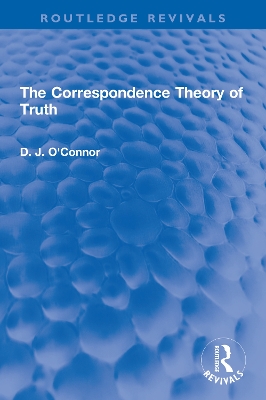Routledge Revivals
1 total work
First published in 1975, The Correspondence Theory of Truth examines the simplest statements of empirical fact and establishes what we can mean when we say that such statements are true. In particular, the author has considered whether any or all of beliefs, sentences, statements, or propositions are properly said to be true or false. He proceeds to examine what we mean by the term ‘fact’ and what possible relation between facts and beliefs (or their linguistic embodiments) could be meant by the term ‘correspondence’. The second part of the book is a critical survey of important contemporary accounts of truth. The author examines Tarski’s semantic theory to see if it offers a satisfactory reconstruction of the essence of the traditional notion of correspondence, then J.L. Austin’s recent and famous version of the correspondence theory and some criticisms of it by Professor P. E. Strawson. A final chapter summarizes the viable content of the correspondence theory and suggests what problems about truth still remain for discussion if the theory is accepted. This book will be an essential read for students and scholars of Philosophy.
